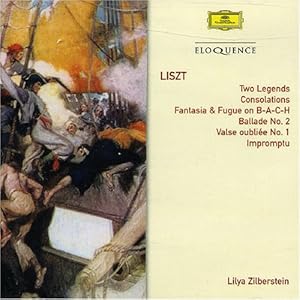With all my attention focused on the Moulus, Sainsburys, Rorems et al of the Nereffid's Guide Awards, I completely neglected the final arbiter of taste in classical music, Classic FM's Ultimate Hall of Fame. Wait a second, how can you present the ultimate Hall of Fame while at the same time announcing that voting is now open for the next one? Don't they know the derivation of "ultimate"? Oh well, I suppose not everyone understands Latin like me. Lorem ipsum dolor sit amet, as I always say.
So what they've done here is they've got the 15 annual Halls of Fame and melded them into a single one. I've actually been doing the same thing myself for years, scoring each year's chart from 300 to 1 and then adding up the year-on-year scores for each piece. I presume they did it the exact same way, because they've come up with essentially the same result as me (a few differences exist, I think because initially they allowed 2 parts of one work to appear separately, such as Holst's Mars and Jupiter, for example).
You will be bowled over to learn that Rachmaninov's Piano concerto no.2 is the favourite piece of music of Classic FM listeners, followed by Mozart's Clarinet concerto, Bruch's Violin concerto no.1, RVW's Lark, and Elgar's Cello concerto. The most popular living composer is, of course, Karl Jenkins; the most popular dead one is Mozart.
The polls are open: you have until February 11 to help contribute to a shock victory for Stockhausen's Helicopter Quartet.
So what they've done here is they've got the 15 annual Halls of Fame and melded them into a single one. I've actually been doing the same thing myself for years, scoring each year's chart from 300 to 1 and then adding up the year-on-year scores for each piece. I presume they did it the exact same way, because they've come up with essentially the same result as me (a few differences exist, I think because initially they allowed 2 parts of one work to appear separately, such as Holst's Mars and Jupiter, for example).
You will be bowled over to learn that Rachmaninov's Piano concerto no.2 is the favourite piece of music of Classic FM listeners, followed by Mozart's Clarinet concerto, Bruch's Violin concerto no.1, RVW's Lark, and Elgar's Cello concerto. The most popular living composer is, of course, Karl Jenkins; the most popular dead one is Mozart.
The polls are open: you have until February 11 to help contribute to a shock victory for Stockhausen's Helicopter Quartet.














